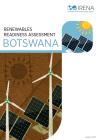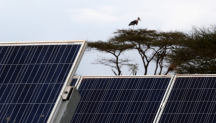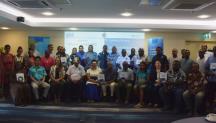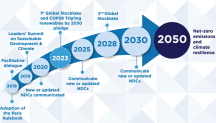

-
-
IRENA (2021), Renewables Readiness Assessment: Botswana, International Renewable Energy Agency, Abu Dhabi
Copied
https://mc-cd8320d4-36a1-40ac-83cc-3389-cdn-endpoint.azureedge.net/-/media/Files/IRENA/Agency/Publication/2021/Aug/IRENA_RRA_Botswana_2021.pdf?rev=a3e75f3468e04e96a84304a5a00a4960
Copied
Renewables Readiness Assessment: Botswana
Newsletter
Botswana has considerable unexploited renewable energy potential, especially as solar, wind and bioenergy and aims to use these renewables to achieve economic energy security and independence. Botswana announced at the end of 2020 that renewable energy would account for at least 15% of the country’s energy mix by 2030, with 50% renewable energy contribution to the energy mix by March 2036.
Download Executive Summary
The International Renewable Energy Agency (IRENA) in close collaboration with the Ministry of Mineral Resources, Green Technology and Energy Security (MMGE) in Botswana conducted a Renewables Readiness Assessment (RRA), assessing the conditions for renewable energy deployment in Botswana.
The RRA report presents clear and practical steps to maximise the country’s use of renewables in driving sustainable socio-economic growth. It provides a set of recommendations specific to the country’s development of renewable energy and covers areas such as policy, regulation, risk, investment, skills development, electrification and generation, and end-use applications.
The recommendations from the report:
- Promote and facilitate implementation of a clear long-term vision for renewable energy development
- Operationalise the regulatory authority
- Establish a grid code that is conducive to variable renewable power
- Revise the tariff-setting structure
- Define a clear regulatory framework to manage risks involved in private sector participation
- Perform a location-specific (pre-feasibility) study for renewable energy generation and streamline permitting processes
- Conduct a study on the capability of the grid to absorb power from variable renewable energy sources
- Integrate rural electrification strategies into a single, comprehensive document and consolidate rural electrification activities
- Support the growth of solar rooftop and home systems through strong incentives and policy instruments
- Develop a strategy for renewable energy and agriculture
- Develop a strategy for renewable energy in the transport sector
- Promote the role of renewable energy for heating, cooling and cooking
- Develop local human capacities along the project value chain




